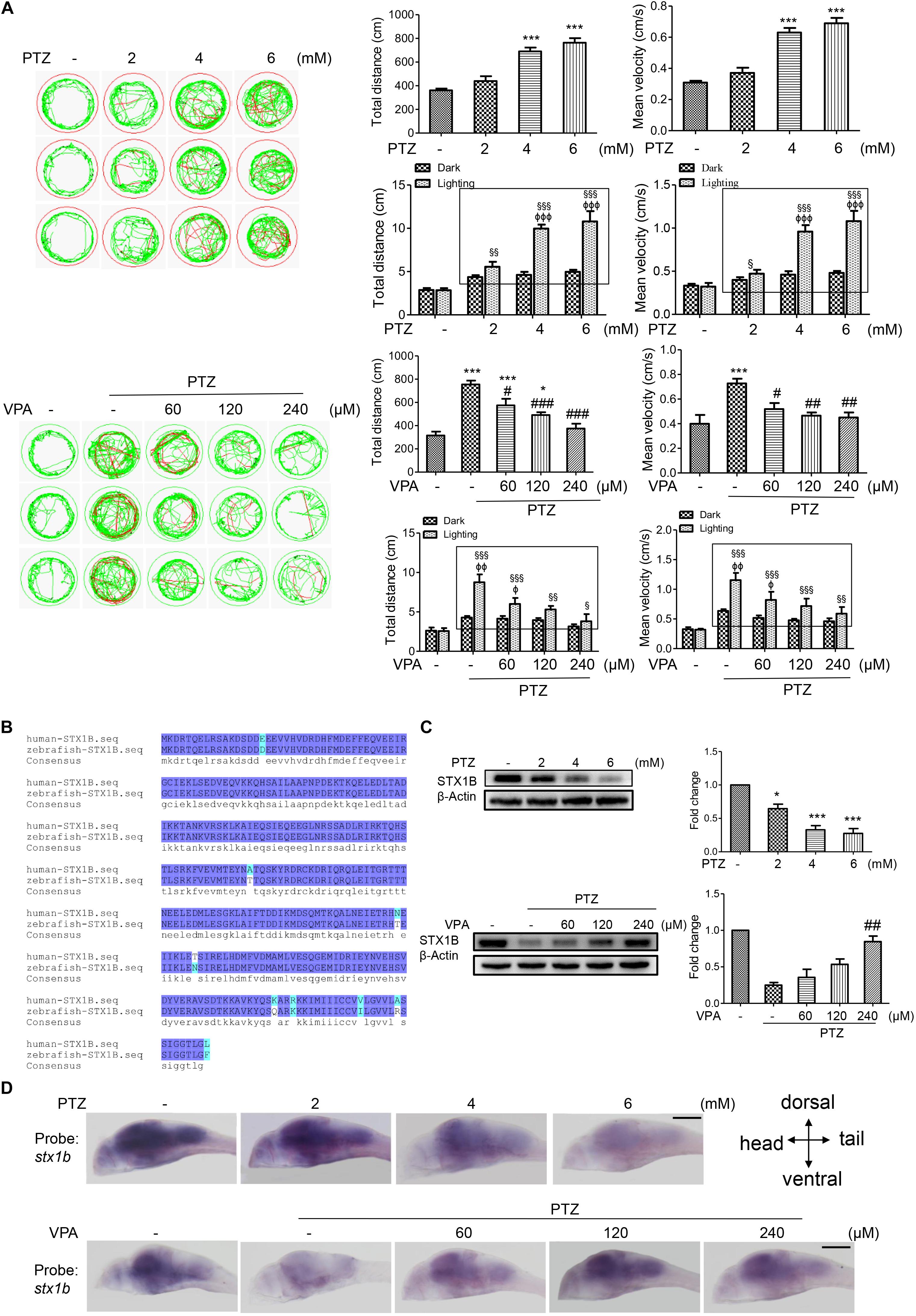Fig. 2
Stx1b gene expression was suppressed in PTZ-induced seizure zebrafish larvae. (A) Seizure-like swimming was induced by PTZ in zebrafish larvae. The left track panel and the right upper histograms show the larval swimming behavior (distance and speed) during 20 min in the dark condition. The red trajectory indicates overactive movement and the green trajectory indicates active movement in the left track figure. The right upper histograms show the larval swimming distance and speed, which were recorded for 20 min in the dark condition. The right lower histograms show the larval swimming distance and speed in three cycles of 5 min dark and 10 s light periods; the open boxes show the differences in distance and velocity of the overexcited larvae between the dark and light conditions (n = 24). (B) Alignment of human and zebrafish STX1B amino acid sequences. The amino acids shown in dark blue are identical, those in shallow blue demonstrate amino acids with similar polarity, and those in white/shallow blue are different. (C) Western blotting tests indicated that STX1B protein was decreased by PTZ (Upper) and increased by VPA (Lower) in a concentration-dependent manner (n = 3). ∗P < 0.05 and ∗∗∗P < 0.001 vs. wild-type; #P < 0.05, ##P < 0.01, and ###P < 0.001 vs. PTZ model; § P < 0.05, §§ P < 0.01, and §§§P < 0.001 vs. wild-type in the light condition; ΦP < 0.01, ΦΦP < 0.01 and ΦΦΦP < 0.001 indicated light vs. dark in the same set of conditions. (D) Hybridization in situ results show STX1B gene expression in the larval brain inhibited by PTZ and rescued by VPA in a concentration-dependent manner (n = 20).

